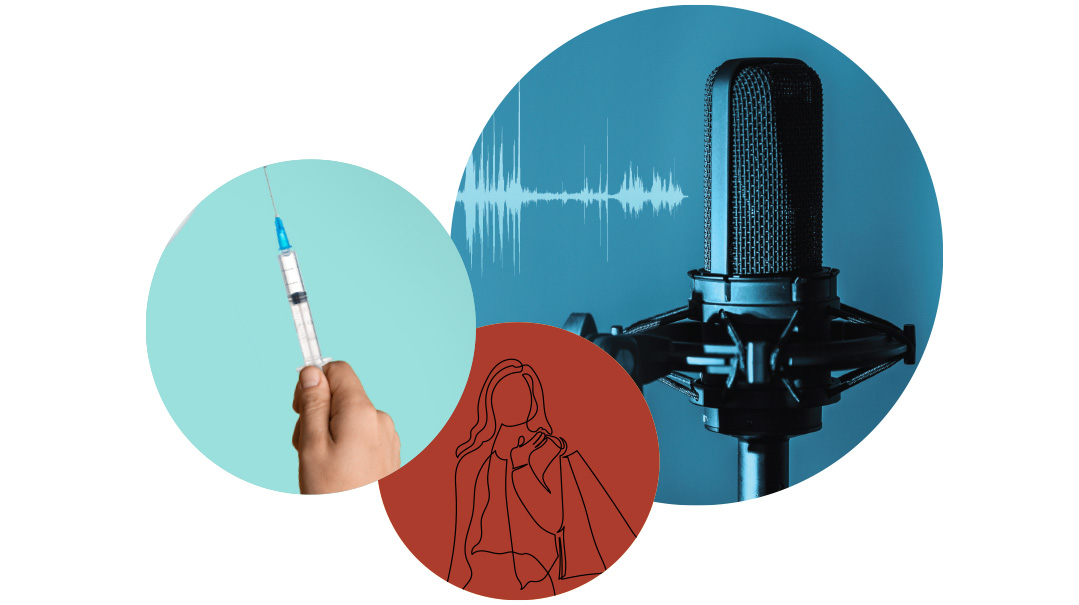Family First Inbox: Issue 823

“Someone unhappy with his or her weight, instead of using injections or undergoing surgery, can visit a trained therapist to take a look at the ‘why’”

Why I Ghosted [Inbox / Issue 821]
Dear Amateur Shadchan,
I read your letter about how hard it is to be “ghosted” after suggesting a shidduch. Thank you so much for doing your best to help young people find their bashert! It’s most appreciated by Klal Yisrael at large and by the singles you help.
Let me share with you an experience I had a good few years ago. I was in shidduchim back then, and I wasn’t a newly graduated 19-year-old, so I was getting calls from shadchanim myself. And while I was extremely flexible with many important things, there were two or three nonnegotiables.
There was one shadchan who kept calling me with suggestions that meant compromising on all of those things. And as many times as I pointed that out to her, very respectfully, she kept at it. It came to a point where I asked her to stop suggesting shidduchim, and still she called me with such ideas. I stopped answering her calls since it was hurting me too much.
I’m sure this isn’t the case with most shadchanim, but that was why I ghosted a shadchan.
Baruch Hashem, the right one came at the right time, and I didn’t have to compromise on any important values.
Thank you again to all the shadchanim who are trying their best.
C. F.
Applause for SAHMs [Inbox / Issue 821]
To the SAHM who decried the lack of support for SAHMs, this Bubby says, I hear you! Kol hakavod to you for choosing to be a stay-at-home mother, even when it’s not a popular choice today. As you said, the frum world today doesn’t gives SAHMs a lot of recognition. Know that what you’re doing is the most important job in the world! It’s a gift to be able to be home caring for your babies and toddlers as well as being very available for your older children and teenagers. A mother gives what nobody else can, no matter what other people say (or convince themselves).
You must truly believe in the tremendous value of your chosen “career,” and this can help you counter the “blues,” which are, admittedly, a hazard of this job. That’s not because it’s an unfulfilling job, but because it can be lonely, because it’s a job that doesn’t put you in the spotlight or provide public accolades. It sounds like you’ve figured out how to deal with this by doing your own learning, finding enjoyable hobbies, exercise, self-care, and trying to connect with other SAHMs. Stick with it. Find or create support systems with like-minded women. They’re out there.
I applaud you, Hashem applauds you. Applaud yourself! And for the record, one day your grown children will applaud you. All of my grown children now thank me big-time for being a SAHM and providing them with the love, security, time, and availability I was, with Hashem’s help, able to give them.
Bubbymom, Los Angeles
Fluency Is Overrated [On Your Mark / Issue 821]
Like the interviewee Esther Kurtz, I also wanted to say Tehillim, but struggled with less-than-fluent kriah skills. What helped me was to slow down and focus on simply pronouncing the words. This change led to an attitude shift: The point of saying Tehillim is to say the words of the Tehillim. Fluency is irrelevant.
The real light-bulb moment for me was when I realized that by focusing my attention on pronouncing the words of the Tehillim, I’m practicing a form of mindfulness. I’m performing an act that not only has spiritual rewards, but also mental and physical benefits. Thus my lack of fluency in kriah was transformed from a liability to an asset.
I hope that this idea can be helpful to others.
S. E.
Enablers Are Victims, Too [Inbox / Issue 820]
I’d like to comment on the letter in Issue 820, “Shattered and Betrayed,” in which the writer faults her father for enabling his narcissistic wife. She says that although he loved his children, he was too weak to set boundaries. As a result, the children not only lost their narcissistic parent, but they were also abandoned by their enabling parent.
Of course, every situation is unique and no two people are the same, but I’d like to comment that in general, an enabler doesn’t choose to be an enabler. It’s unfair to say that “narcissists and enablers find each other.” The enabler is a victim of the narcissist, and enabling can at times be the least damaging route.
You mention the setting of boundaries. In my experience, boundaries don’t work for everyone. To quote the writer of the piece: “My mother, a malignant narcissist, needed extremely strong boundaries. But when we would set those boundaries, she’d be the most vengeful person, going to any length to bully us into submission and then act like nothing had happened.” It’s clear, from her own words, that boundaries weren’t a solution.
Yes, her father was the adult, and he was possibly aware from his years of experience of trying every avenue that the best way of dealing with the situation was to tiptoe around the mother. Sometimes, the price tag of boundaries is too steep to pay, as it could rip the family apart. It’s also likely that as much as the children suffered, the father suffered even more, as the spouse is the most vulnerable yet loyal target.
In a case I’m familiar with, the older children recognized the situation and explained to the younger ones that this isn’t a case of two difficult people, but rather one difficult person, and the other struggling to deal with it. If you look at it that way, you’ll be much more understanding of your father.
I therefore urge you to go back to pitying your father, as he very likely suffered the most, and was doing his best (and was probably highly successful) in holding everything together single-handedly.
Anonymous
Therapy Is a Better Solution [Give It A Shot / Issue 819]
After reading the recent article about Ozempic, I wanted to share with readers an alternative to medical injections. Women (and men!) who are unhappy with their eating habits or body image — and are looking for a solution that is healthier for the mind and body than lifelong interventions that can have harmful side effects — may want to explore therapy.
When someone is ill, instead of only treating the symptoms, a more effective method is to also address the root cause. Similarly, someone unhappy with his or her weight, instead of using injections or undergoing surgery, can visit a trained therapist to take a look at the “why.” Why am I eating this way? What is preventing me from adding some healthy movement to my life? Why do I feel this way about my body? What is happening in my life that is causing me to use food as a coping mechanism, and how can I train myself to cope instead?
If your eating habits are emotional or impulsive, if you binge-eat, or if you use food as a coping mechanism for dealing with life, therapy may be an effective way for you to learn healthier eating habits and coping mechanisms.
A coping mechanism is a tactic an individual uses to manage emotions and behaviors in response to stressful situations. These mechanisms can take many forms, including positive behaviors such as exercise or talking to a friend, or more negative behaviors such as avoidance or poor eating patterns. Coping mechanisms are an important part of mental health and well-being, and can help individuals to navigate difficult times and maintain their emotional balance.
A trained therapist will use evidence-based approaches such as cognitive based therapy (CBT), dialectical behavior therapy (DBT), and other modalities to instill healthier coping mechanisms. Additionally, a therapist can help you build a positive, accepting relationship with your body. Studies show that people who feel better about themselves take better care of their bodies, leading to healthier physical outcomes.
We spend a lifetime in our bodies. Instead of punishing ourselves, we can be compassionate with our bodies, and achieve self-esteem, a positive body image and recover the joy of living by getting the help we need.
As a society, we should reflect on the messages we send by promoting the notion that the only beautiful body is a slim body. Talk to yourself the way you’d want someone to talk to your daughter, because without a doubt, your children (or students, siblings etc.) are listening to and learning from your example!
Shifra Pfeffer
Project Coordinator
Relief Resources, Eating Disorders Division
(Originally featured in Family First, Issue 823)
Oops! We could not locate your form.







